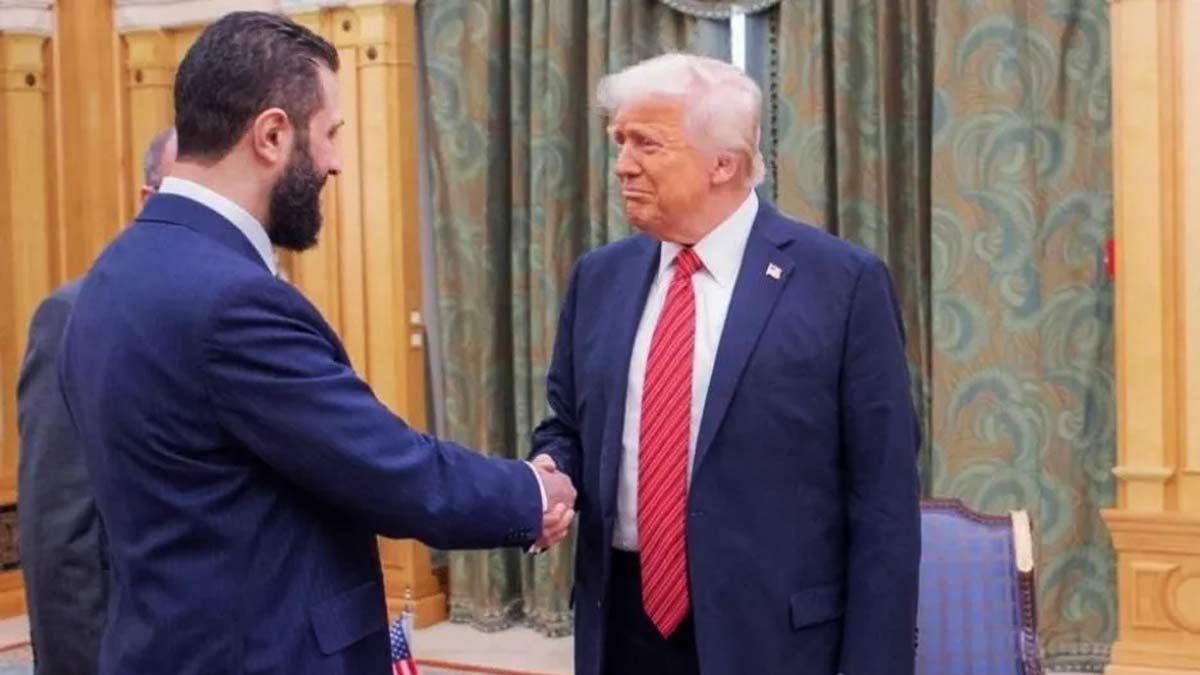Syrian President Ahmed al-Sharaa is scheduled to visit the United States on November 10 for talks with President Donald Trump at the White House. The trip, confirmed by Tom Barrack, the American envoy to Syria and Turkey, will mark a historic first—no Syrian head of state has ever before been received at the White House.
The visit represents a remarkable shift in international diplomacy and follows one of the most significant turning points in Syria’s modern history: the collapse of the Assad family’s rule lasting more than 50 years. The Assads maintained tight control over Syria through an authoritarian regime often condemned for its repression and human rights abuses. That era came to an abrupt end last December when Bashar al-Assad fled to Russia after losing control of the country amid widespread unrest and military defections. It allowed Ahmed al-Sharaa, a leading figure in the anti-Assad movement, to consolidate authority and emerge as Syria’s new president.
His forthcoming meeting with President Trump will therefore not only symbolise a dramatic change in Syria’s leadership but also signal the first major step towards rebuilding diplomatic relations between Washington and Damascus after years of hostility.
Al-Sharaa, who had led anti-Assad forces and launched a surprise offensive in Aleppo in November 2024, rose quickly after Assad’s fall. By January this year, the leaders of the various rebel militias appointed him president of Syria. His personal story makes his visit to Washington especially remarkable. More than a decade ago, he was viewed as an extremist. He once led a militant group affiliated to al-Qaeda, and in 2013 the US government officially listed him as a terrorist and offered a bounty for his capture.
Trump first met Al-Sharaa in Saudi Arabia in May, describing him as “a young, attractive guy, tough, with a strong past.” After that meeting, Trump announced that his administration would lift US sanctions on Syria, saying he wanted to “give them a chance at greatness.”
The White House visit is part of a larger American effort to normalise relations with Syria. Central to this process is the move to repeal the Caesar Syria Civilian Protection Act, known simply as the Caesar Act. This law, passed in 2019 and enforced from June 2020, punished the Assad regime and anyone doing business with it—especially in the energy, construction and finance sectors. The sanctions were designed to pressure Assad by isolating Syria’s economy.
While the Trump administration has already granted temporary waivers and lifted some restrictions, the Caesar Act itself can only be repealed by Congress. The State Department has now officially asked Congress to end the sanctions. Officials argue that ending these sanctions will help stabilise Syria and support the long-term defeat of Islamic State. A State Department spokesperson said that removing the sanctions would “preserve our core objectives” and “give the people of Syria a chance for a better future.”
For the new Syrian government, the lifting of sanctions is essential to rebuilding a country devastated by nearly 14 years of war. Much of Syria’s infrastructure lies in ruins, and about half of its population has been displaced.
During his visit, Al-Sharaa is expected to sign an agreement committing Syria to join the US-led coalition against Islamic State. According to Barrack, this step will mark the beginning of a new partnership aimed at improving security in the region.
Beyond the fight against terrorism, Washington hopes that improved ties with Syria will help bring stability to the wider Middle East. After Al-Sharaa’s visit, the fifth round of direct peace talks between Syria and Israel is expected to take place, with the United States acting as mediator. American officials say they hope to see a security agreement on the Syrian-Israeli border before the end of the year.
The last time a senior Syrian official visited the White House was in December 1999, when then–Foreign Minister Farouq al-Sharaa (a relative of the current president) met US officials during peace discussions with Israel.
Inside Syria, Al-Sharaa faces enormous challenges as he tries to unite and rebuild a country ravaged by conflict, both internal and external. Rebuilding will take years, but Al-Sharaa has promised to focus on national unity and reconstruction.
In his speech to the 80th United Nations General Assembly in September, Al-Sharaa said: “Syria is reclaiming its rightful place among the nations of the world.” It was his second visit to the United States since becoming president. He expressed confidence that Syria would recover within his lifetime, saying, “The Syrian people are strong and deserve hope and a chance to return home.”
